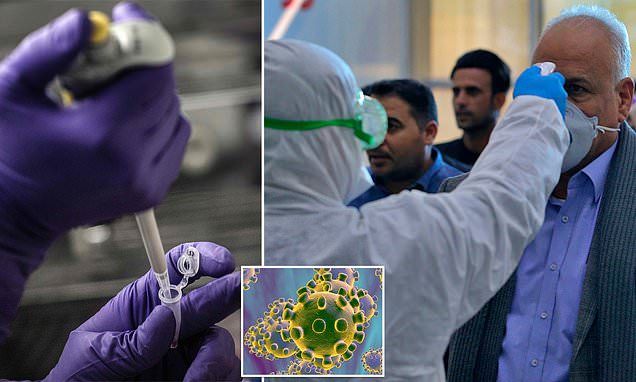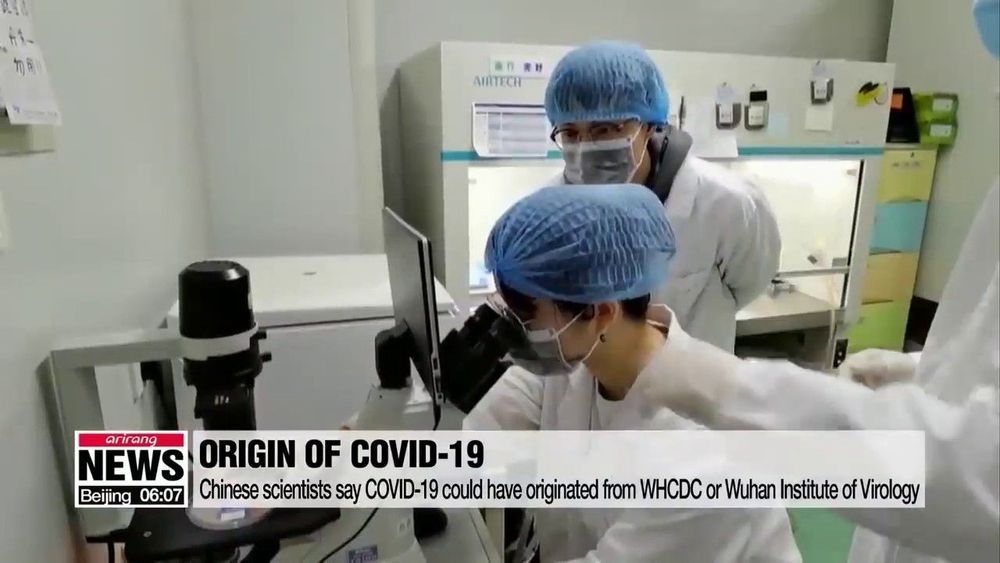Feb 22, 2020
The Concussion Cure: 3 Proven Methods to Heal Your Brain
Posted by Paul Battista in categories: biotech/medical, neuroscience
In his book, Paul Henry Wand, MD, describes a protocol for treating concussions.
By Paul Henry Wand, MD.
In his book, Paul Henry Wand, MD, describes a protocol for treating concussions.
By Paul Henry Wand, MD.

Australian scientists have made a key breakthrough in a desperate bid to develop a vaccine for the killer coronavirus.
Researchers at the University of Queensland are making a fast-tracked attempt to make a cure for the disease, which has killed more than 2,200 people worldwide.
Continue reading “Coronavirus vaccine breakthrough in Australia” »

https://www.youtube.com/watch?feature=youtu.be&v=TIXxRXNEDJo
Enjoy the videos and music you love, upload original content, and share it all with friends, family, and the world on YouTube.
A major luxury stock index lost $54 billion in value over two weeks in January. Some luxury retailers are unsure how big the disruption could be.
The rest of the world is interested, too. Africa contains much more genetic diversity than any other continent because humans originated there. This diversity can provide insights into human evolution and common diseases. Yet fewer than 2% of the genomes that have been analysed come from Africans. A dearth of molecular-biology research on the continent also means that people of African descent might not benefit from drugs tailored to unique genetic variations. Infectious-disease surveillance also falls short, meaning that dangerous pathogens could evade detection until an outbreak is too big to contain easily.
Nigeria is poised to become a hub for genetics research, but a few stubborn challenges block the way.
L10-italian-towns-in-lockdown-over-coronavirus-fears.
ROME: Authorities in northern Italy on Friday ordered the closure of schools, bars and other public spaces in 10 towns following a flurry of new coronavirus cases.
Five doctors and 10 other people tested positive for the virus in Lombardy, after apparently frequenting the same bar and group of friends, with two other cases in Veneto, authorities said at a press conference.
Continue reading “10 Italian towns in lockdown over coronavirus fears” »
For three years, anthropologist Alan Rogers has attempted to solve an evolutionary puzzle. His research untangles millions of years of human evolution by analyzing DNA strands from ancient human species known as hominins. Like many evolutionary geneticists, Rogers compares hominin genomes looking for genetic patterns such as mutations and shared genes. He develops statistical methods that infer the history of ancient human populations.
In 2017, Rogers led a study which found that two lineages of ancient humans, Neanderthals and Denisovans, separated much earlier than previously thought and proposed a bottleneck population size. It caused some controversy—anthropologists Mafessoni and Prüfer argued that their method for analyzing the DNA produced different results. Rogers agreed, but realized that neither method explained the genetic data very well.
“Both of our methods under discussion were missing something, but what?” asked Rogers, professor of anthropology at the University of Utah.
Sobyanin said last month that the city had begun using facial recognition as part of its city security surveillance programme.
Kremlin spokesman Dmitry Peskov said he had not seen details of the actions being taken in Moscow but that measures to curb the spread of the coronavirus should not be discriminatory.
The clamp down on quarantine rules comes after a woman in St. Petersburg staged an elaborate escape from a hospital where she said she was being kept against her will.
Martin Luther King Jr. Community Hospital in Los Angeles is using biometric facial recognition technology from Alcatraz AI to replace or augment badges for physical security and access control, the company has revealed to Biometric Update.
The Alcatraz AI 3D Rock Facial Authentication Platform was integrated with MLKCH’s access control system to strengthen identity verification procedures for its 70 security department employees. The hospital, which employs more than 2,000 people, considered biometric card reader options, and selected Alcatraz Rock to secure access to its security center.
“The security department was a natural place to start with coverage from the Alcatraz Rock and facial recognition access control,” says MLKCH Director of Support Services Mark Reed in a case study by Alcatraz 3D. “Our security department obviously has a huge role in maintaining a safe and secure hospital environment for patients, staff, and guests and therefore houses important employees and information. Controlling access to this security area is key and we wanted to ensure that only those individuals that are supposed to be coming and going are the ones that are actually coming and going. What better way is there to verify identity than with facial recognition?”
This is a guest post by Mohammed Murad, vice president, global sales and business development, Iris ID.
The world is in the grip of a coronavirus epidemic the impact of which extends well beyond people’s health, including more than 1,300 reported deaths. The fear of this recently identified disease has closed businesses and grounded thousands of flights. The impacts have led to estimates of reduced economic growth in many countries.
While the virus that was first discovered in a Chinese province has killed far fewer people than influenza this year, the fatality rate has people worried. Influenza reportedly kills between 10 to 20 people per 100,000 infections each year. The death rate from the coronavirus tops 2,300 deaths per 100,000 cases. Those latter statistics change virtually daily as more cases of the virus are reported.